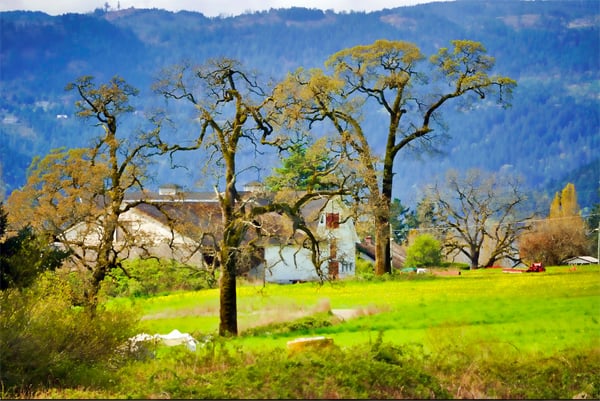A bill in front of the British Columbia legislature will give property owners the right to refuse to have their land removed from the Agricultural Land Reserve, even if the commission that oversees the reserve believes the land is unsuitable for farming and should be excluded.
The government is making the change in response to land owners who receive a 50 per cent break on their school taxes as well as reduced property taxes because their land is in the ALR, said Lana Popham, the NDP's agriculture critic.
"It's ironic," Popham said. "[The BC Liberals] were the ones that were pushing for a boundary review, and the argument was to make sure it was only good agricultural land in the ALR. Now they're pushing for it to be a tax shelter."
The change was included in the Miscellaneous Statutes (General) Amendment Act 2016, which was introduced on May 2 but has more debate to go through before becoming law.
Agriculture Minister Norm Letnick said that when the ALR was created in the early 1970s, it was always intended that the boundaries would be refined. That review process has continued for decades and was renewed with an increased budget in the last couple of years.
Letnick said that during a pilot boundary review the ALC conducted in the Kootenays, it became clear many property owners wanted their land to stay in the ALR, regardless of the outcome of the review.
"I've heard from two of the MLAs from the Kootenays, Norm Macdonald and Bill Bennett, reflecting that sentiment as well to me," he said.
Review 'upset' residents, MLAs, says minister
The government learned from that response to the pilot, Letnick said. "As we continue to support the land commission's work in doing the boundary reviews, if that's the case everywhere they go, that the local residents are going to be upset and the local MLAs are going to be upset, because people aren't providing their consent, then the pilot project has done its work."
The government decided "[owners] should not be forced out of the agricultural land reserve without their permission" and backdated the new law so that it will apply to the results of the pilot boundary review in the Kootenays, Letnick said.
He acknowledged that tax breaks are a reason people might want their land to stay in the ALR. "There are tax implications," he said. "That's one of the considerations for keeping land in the reserve."
Joan Sawicki, a former NDP cabinet minister, said the proposed law is "bizarre." Instead of allowing the commission to make independent decisions based on science, she said, with the change "You've got an individual landowner who can just throw a wrench in the process."
In 2014, the government split the ALR into two zones and loosened restrictions on how farmland could be used in some areas. Sawicki pointed out that at the time Bennett, who spearheaded those changes, argued the ALR included much unproductive land that didn't belong in the reserve.
The commission was supposed to ensure only good farmland remained in the ALR, but now the government is preventing the commission from doing that work, she said. The change sends a mixed message and will reduce the credibility of the ALR boundaries, she said.
"It kind of erodes the integrity of the ALR," said the NDP's Popham. "As a land use policy that you can get behind and defend, you have to make sure the land that's in there is agricultural."
The 2014 review in the Elk Valley proposed excluding 1,437 hectares from the ALR and adding in 740 hectares that weren't previously protected, Popham said. While that might sound like the ALR would be shrinking, she said, "There's not really a loss because some of that land should never have been in there."
The new rules would mean that land that has never been used for farming and that is unsuitable for agriculture could remain in the ALR, she said.
The government is again reducing the commission's independence and is demonstrating that doing what's best for agriculture in the province does not drive its policies, she said. "On the ALR, this government has no trust anymore." ![]()
Read more: BC Politics, Environment
















Tyee Commenting Guidelines
Comments that violate guidelines risk being deleted, and violations may result in a temporary or permanent user ban. Maintain the spirit of good conversation to stay in the discussion.
*Please note The Tyee is not a forum for spreading misinformation about COVID-19, denying its existence or minimizing its risk to public health.
Do:
Do not: